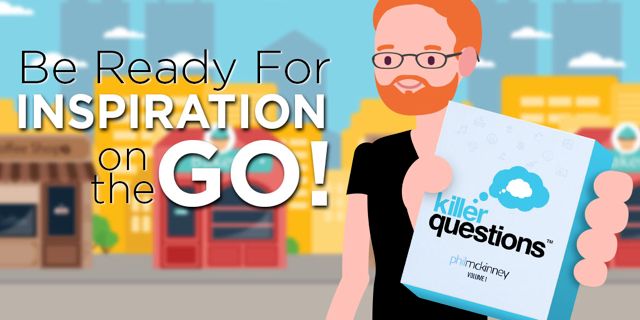Why Do Questions Matter For Your Success?
One day when my kids were still little I was sitting in the car with my daughter Tara. She was about four years old at the time, and as we drove down the street she noticed the curb along the side of the road and got curious about it. Suddenly I was fielding question after […]

One day when my kids were still little I was sitting in the car with my daughter Tara. She was about four years old at the time, and as we drove down the street she noticed the curb along the side of the road and got curious about it. Suddenly I was fielding question after question about curbs. Why did we need them? What would happen if there weren’t a curb? What were they made of? What’s so good about concrete? What’s concrete made of? Every parent has had a similar experience, but that afternoon sticks in my mind because it was one of the first times I turned to one of my kids and said, “You know what, I don’t know the answer to that. Why don’t you find out for both of us?” Questions matter.
Judge a man by his questions, rather than by his answers.
Voltaire
Questions Matter
When we got home, Tara ran to her room and started to try to figure out the answers to the questions. She was excited to find the answers because I hadn’t known them, and I’d passed on the responsibility of figuring them out to her. What I realized at that moment was that the natural curiosity of kids gets lost over time. As adults we use our education and past experiences to solve the problems we face rather than relying on questions. It’s these historical assumptions of what works that prevents organizations from generating new ideas. After all, you can’t change your core beliefs about your organization or industry unless you change something in your perspective about your business, your industry, your customers, or yourself. Think of it this way: if you want to start generating new output, you first need new input. And the only way to get new input is to either find new sources of information and inspiration or find new ways of looking at the same existing information you’ve been looking at for years.
There are many ways to generate new input, but the most effective is to learn to ask the kinds of questions that can lead you to a real discovery. This is true both of the kinds of questions you ask other people, and the ones you pose to yourself. It’s also true both in the straightforward semantic sense (you need to be able to use words in order to phrase an effective question) and in the larger philosophical sense (you need to know how, why, and when to ask the right kinds of questions.)
In that moment with Tara I realized there was a difference that questions can make in the discovery process. Learning how to effectively phrase, ask, and use questions became one of the pillars of my innovation philosophy. Questions matter when it comes to innovation.




